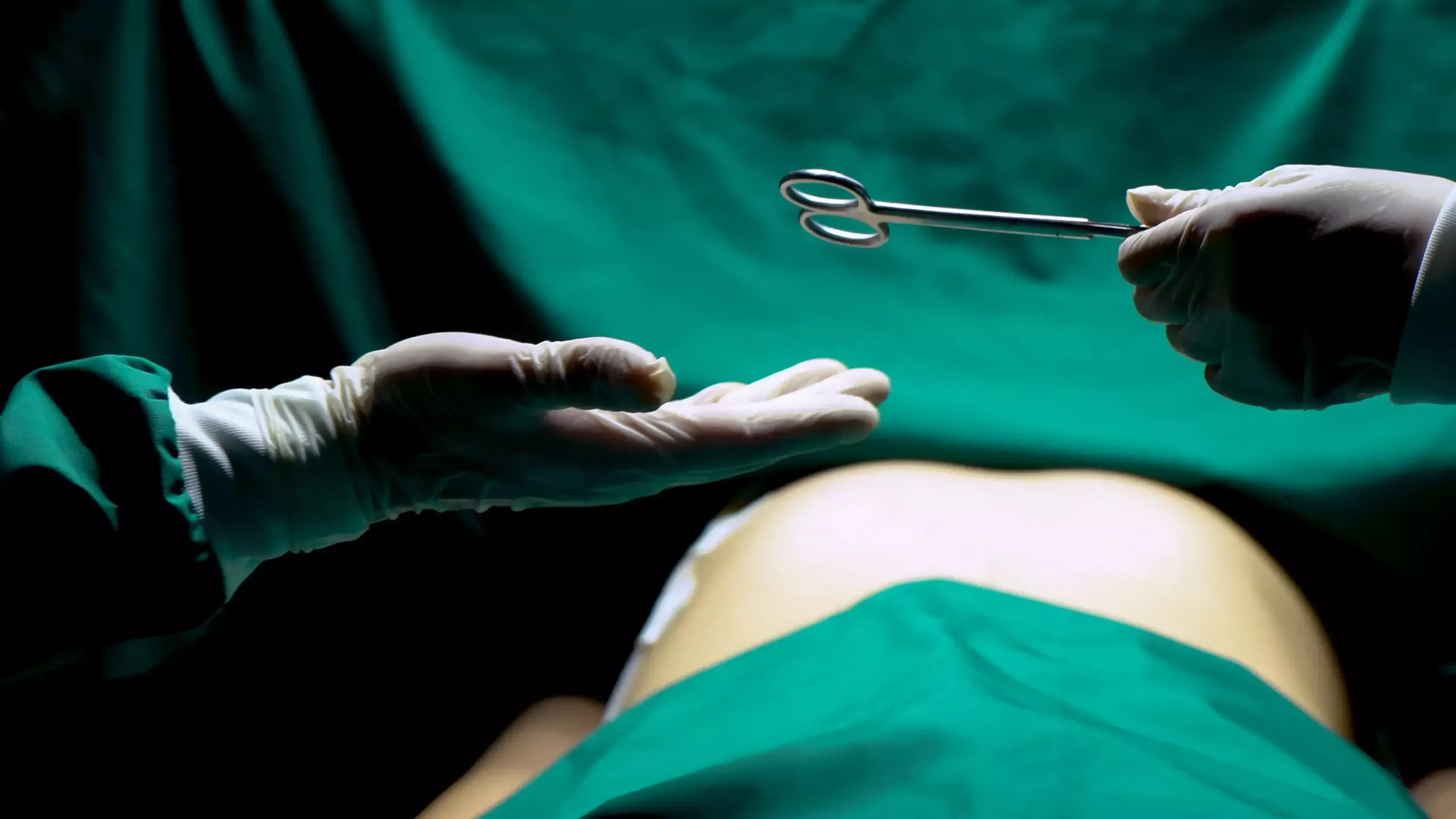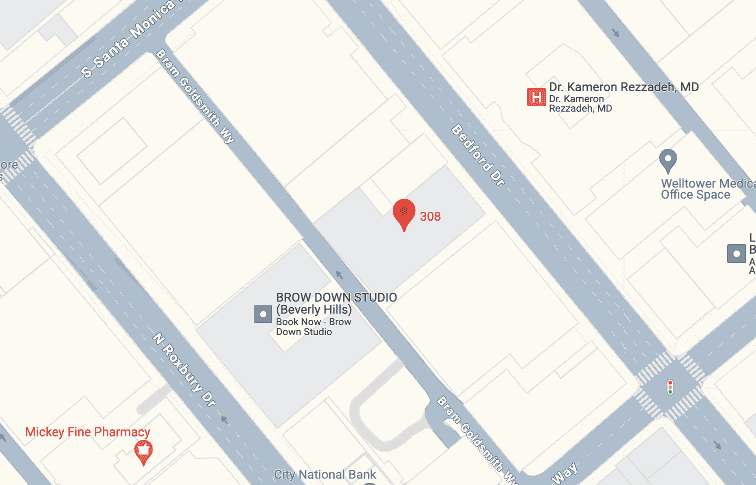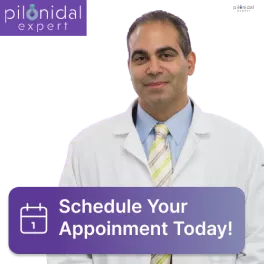Pilonidal cyst doctor
What Is A Pilonidal Cyst?
A pilonidal cyst is a skin infection that is not fully understood, though many researchers believe this condition is caused by ingrown hairs. They are not contagious. Pilonidal cysts are common in the 20-40 year age group, with statistics showing more than 70,000 cases are reported in the U.S. each year! That is to say, they are very common and nothing to be embarrassed about. Pilonidal cysts can be painful, a nuisance, and are, for lack of a better phrase, not fun. If you are currently suffering the pain, contact pilonidal cyst doctor from Pilonidal Expert right away. However, having a general understanding of what pilonidal cysts look like, how they form, what to expect, what precautions to take, what treatments are available, and what the best surgery to remove pilonidal cyst is. So, let us jump into it.
What Is a Pilonidal Cyst Infection?
A pilonidal cyst is a specific kind of infection in a cyst that usually develops at the top of the buttock cleft, close to the tailbone. Often the product of ingrown hairs, these cysts have the potential to get infected and become a pilonidal abscess.
What is a pilonidal cyst and why do they form?
What is a pilonidal cyst? Also referred to as a pilonidal sinus or pilonidal disease– is a round sack of tissue that forms under the skin that can contain air, fluid, hair, and skin debris. Pilonidal cysts typically form near the crease of the buttocks, though are likely to be found in high-friction or high-pressure areas of the body.
There isn’t one thing that causes infections; nevertheless, they are closely related to ingrown hairs, as these cysts tend to occur when hair becomes embedded under the skin due to friction and pressure. The body recognizes the hair as a foreign substance and forms a cyst around it to protect itself.
It is a more common infection in young men going through puberty, though pilonidal cysts do affect anyone. In WWII, many referred to pilonidal disease as the “Jeep Driver’s Infection” since it is a frequent skin condition in people who sit often. Therefore, professionals who are required to sit for prolonged periods of time, such as truck drivers, bicyclists, desk jobs, etc, are more prone to pilonidal cysts. As suggested by statistics, people who have been diagnosed as obese or overweight, live inactive or unhygienic lifestyles, and have thick or coarse body hair are at higher risk for developing this skin infection.
You might be wondering, “are pilonidal cysts hereditary?” The likelihood of getting a cysts can in fact be hereditary, but specifically to if you’ve inherited tough, coarse hair follicles or are naturally hairy.
What does a pilonidal cyst look like?
If you have a pilonidal cyst you will know by the look of it. When infected, a pilonidal cyst is a swollen mass, generally located at the crease of the buttocks, but can range anywhere from the tailbone to the anus. It is common for the sack to contain pus and blood, to be tender to the touch, and to look red; it is not uncommon for there to be more than one cyst in the same area.
Consult a pilonidal cyst doctor if you are experiencing signs of an infection. An infection can cause pain, fever and nausea, reddening of the skin, and pus and blood drainage with a foul odor.
Learn more : How to Permanently Remove a Pilonidal Cyst?
How serious are pilonidal cysts and can they go away on their own?
Pilonidal cysts are not life-threatening but can affect one’s day-to-day routine as they are quite painful. Because they are typically found located at the top of the buttocks, sitting or applying any sort of pressure to the area can cause pain and discomfort.
If mild, while not definitive, there are some at-home remedies and practices that may help alleviate the pain and size of a pilonidal cyst:
Maintaining good hygiene is the best first step in treating and also preventing pilonidal cysts. If you are showing symptoms of a pilonidal cyst, keeping the area clean and dry is crucial; regularly changing your clothes can help keep the area fresh and not aggravate the skin. Take daily showers and change clothing regularly if you tend to be sweaty or wear tight clothing. While in the shower, make sure to clean the affected area by gently washing it with soap; after your rinse, dry the area thoroughly before dressing and try to keep it clean and dry throughout the day. Good hygiene is a great way to battle recurrent pilonidal cysts, and is just great day to day practice for your overall health.
Initial treatment of an infected cyst involves draining the infection. Some patients are successful at getting the cyst to drain on its own without needed physician intervention. Draining the cyst typically provides instant relief.
After some at-home care and time, your pilonidal cysts might seem less inflamed or start to feel better to the point where it is no longer noticeable. That is great, but that does not mean the cyst no longer exists. The sack or sinus remains under the skin, meaning the possibility of having a flare-up still hangs in the air. At-home remedies alleviate the symptoms of a pilonidal cysts, but surgical intervention is the only way to guarantee the cysts will not return. If not met with proper treatment, cysts are likely to come back and can become a chronic issue.
Some best practices to keep the cyst from recurring include:
Pilonidal cyst treatment
Be ready to answer variations of the following questions:
During your initial visit, your medical provider will generally start by asking a few questions about your symptoms, pain level, and concerns. To diagnose the cyst, your medical provider will conduct a full physical examination, and will check your bum area for signs of a skin infection. If you have a pilonidal cyst infection, it will be clear from the look of the bulge.
There are multiple treatments your physician can take in treating your skin infection, depending on the severity and stage of the pilonidal cyst. If your medical provider determines your case as mild, a phenol injection can be administered as it has proven to treat, prevent, and limit the infection of a pilonidal cyst.
If a cyst is actively infected, the initial treatment is drainage, which treats the infection, but does not treat the cyst. The drainage is only a temporary solution for the infection. Through this procedure, your medical provider will likely numb the area with an injection, then make small incisions, allowing the cyst to drain itself of the puss, blood, air, or hair (all commonly found in these types of cysts).
In conjunction with the drainage procedure, many medical providers may also prescribe antibiotics for the infection, though recent data has demonstrated that with proper drainage antibiotics are not necessary and provide no added benefit. After your procedure your healthcare provider will discuss the wound after care. It is imperative that you follow the instructions and ask for clarification whenever necessary.
Chronic pilonidal cysts
While draining the pilonidal cyst treats the present issue and offers quick symptomatic relief, there is always the possibility of the skin infection returning. Effective ways to treat this type of skin infection are through formal procedures which range from minimally invasive office procedures to full-excisions. If you are experiencing chronic pilonidal cyst, speak with the doctor for pilonidal cyst and discuss what options are available to you.
What doctor treats pilonidal cyst? | Pilonidal Expert
Dr. Kamrava is a colorectal surgeon offering noninvasive surgery, fast treatment with no downtime, and home remedies for other colorectal conditions. Dr. Allen Kamrava is highly regarded as a top pilonidal cyst doctor as well as a Board-certified surgeon in general and colorectal surgery. With years of experience, Dr. Kamrava has helped his patients with colon cancer, hemorrhoids, anal fissures, and much more colorectal diseases. Dr. Kamrava is dedicated to his patients for the most up-to-date treatment modalities, compassionate care, and most importantly life-changing results.
If you are currently suffering from any colorectal conditions. Schedule an appointment today with the best doctor for pilonidal cyst or contact us at (424)279-8222 , to relieve your pain.
Meet Dr. Kamrava
MD | MBA | Board Certified General & Colorectal Surgeon
When it comes to treating colorectal conditions, few surgeons are as experienced or as dedicated to their craft as Dr. Allen Kamrava. Fellowship trained and Board-certified in colorectal and general surgery, Dr. Kamrava has years of experience treating various colorectal conditions, including colon cancer, anal fissures, fistulas, hemorrhoids, and more, providing patients with compassionate care and life-changing results. Along with his intensive experience in the colorectal field, he is an associate teaching faculty in the Department of Colon and Rectal surgery at Cedars Sinai Medical Center, which in 2022 US news ranked as the number one center in California for Colon and rectal Surgery, and ranked second in the nation.
With years of experience, access to some of the most cutting-edge procedures available, and a strong sense of dedication to patients, Dr. Kamrava is the premier colorectal surgeon in Los Angeles. Schedule an appointment today by calling (310) 439-9914.

SUCCESS STORIES
I’ve had pilonidal disease for about ten years, and throughout that time I’ve had many doctor appointments, sleepless evenings looking up information on my condition on the Internet, and countless hours of suffering in silence because I felt like recovery was utterly out of my reach.
Dr. Kamrava saved my life. He was the first doctor I spoke with that put me at ease and gave me hope that I could heal as he specialized in pilonidal disease. Despite the possibility of a recurrence and the fact that the surgery is quite expensive, I felt safe and confident with his care.
Dr. Kamrava is just as professional, considerate, and great throughout the entire process as many of the testimonials on this website can agree. Additionally, his office staff is excellent! I will always be grateful to him for helping me deal with something that has given me years of pain and suffering.
For more than ten years, I had been having pain in my lower back and was scared to seek medical attention. I looked up Dr. Kamrava’s office online and, after reading the positive testimonials, decided to contact them. I was immediately connected and at ease throughout the initial consultation on the phone. I made an appointment for the following week at a time that was convenient for me. Major plus. I was so anxious during the week that I waited. My mind raced with ideas about how serious the problem I had been avoiding had become.
I met with the doctor in about five minutes, and I was relieved. He was very friendly and professional, and I didn’t feel at all uneasy with him. After he listened to my problem (love that), he commented on what he thought might be happening. After that, he performed a check-up on me, and it was discovered that I was alright! My “main” issue (in my thoughts), which had been bothering me for years, had resolved itself. My shoulders felt like they were being lifted off a million tons. I had faith in the doctor because I knew he had a lot of experience and he is trustworthy.
Overall, I’m delighted to find Dr. Kamrava’s office. All went well, thank God. I learned a valuable lesson from this not to ignore signs from the body.
About a year ago, I went to see Doctor Kamrava for help with pilonidal cyst. He was always reachable by phone and patiently answered all of my inquiries during the entire treatment. Dr. Kamrava is not your typical medical professional. He works hard to build relationships with his patients and he is compassionate and empathetic.
I can honestly say that while under Dr. Kamrava’s care, I completely trust him, despite the fact that I typically have anxiety about surgery. Dr. Kamrava and his team provided excellent service, and I wouldn’t recommend them more if you are looking for a pilonidal cyst surgeon in Los Angeles.
I visited Dr. Kamrava for the Pilonidal cyst that my son had. He was the only doctor providing laser treatment for Pilonidal Cysts at the time. He did an excellent job of presenting our options and the pros and cons of this laser therapy. Despite the fact that we lived quite far away, we ultimately made the decision to make a trip to the office based on all the information that Dr. Kamrava gave us. The procedure went quite well, with a quick recovery and no follow-ups. Excellent experience, if necessary, we wouldn’t think twice about using Dr. Kamrava’s services again.
One of the nicest visits to a doctor’s office that I have ever had in Los Angeles. The front desk staff is extraordinarily friendly and highly competent (rare in L.A.). I was happy and couldn’t ask more for my visit. They quickly took me in after my first phone call and Dr. Allen and his nurse are outstanding. I’m not sure why his reviews aren’t all five stars, but then again, I’m a doctor too, and occasionally I’ll receive a negative review since nobody can please everyone, and there are some unhappy people out there. The man is smart, polite, and he truly made the experience enjoyable. Strongly recommend to everyone. I’m grateful, Dr. Kamrava.















